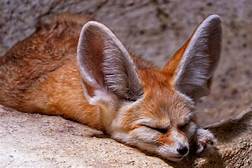Exotic Pets in Illinois: Know the Restrictions and Responsibilities
Keeping exotic pets can be fascinating and rewarding, but it's essential to understand the legality and responsibilities associated with owning these unique animals in Illinois.

Licensing and Permits
1. Obtaining a License: In Illinois, exotic pet owners must obtain a license from the Illinois Department of Natural Resources (IDNR). This license serves as a legal acknowledgment of your ownership and responsibility for the animal.
2. Specific Requirements: The requirements for obtaining a license vary depending on the animal species. Some animals may require additional permits or approvals, depending on their potential for causing harm.
3. Annual Renewal: Exotic pet licenses are typically valid for one year and must be renewed annually. Failure to renew the license can result in penalties and potential legal consequences.
Permitted Exotic Pets in Illinois
1. Reptiles: Many reptile species, including snakes, lizards, turtles, and crocodiles, are legal to own in Illinois. However, certain species with specific regulations may require special permits or authorizations.
2. Birds: Some exotic bird species, such as parrots, macaws, and cockatoos, are allowed in Illinois. It's crucial to research the legality of each species and follow the necessary regulations.
3. Small Mammals: Certain small exotic mammals, including hedgehogs, sugar gliders, and prairie dogs, are permitted in Illinois. However, it's essential to check local ordinances and regulations, as some cities or towns may have restrictions.
Prohibited Exotic Pets in Illinois
1. Vicious Animals: Animals classified as "vicious" under Illinois law, such as lions, tigers, bears, and hyenas, are strictly prohibited from being kept as pets in the state.
2. Venomous Animals: Keeping venomous reptiles and spiders as pets is illegal in Illinois due to the potential risk they pose to human health and safety.
3. Wildlife Species: Native wildlife species found in Illinois, including deer, raccoons, and skunks, cannot be kept as pets. These animals require their natural habitat to thrive and should not be taken from the wild.
General Responsibilities and Considerations
1. Proper Housing and Care: Exotic pet owners must provide appropriate housing, nutrition, and veterinary care for their animals. This includes maintaining suitable enclosures, offering specialized diets, and handling them safely.
2. Risk Assessment: Before choosing an exotic pet, thoroughly evaluate the potential risks associated with the animal. Some species may require specialized care, handling skills, or significant resources to keep them safely.
3. Public Safety: Exotic pet owners must take precautions to ensure their animals do not pose a threat to the public or their neighbors. This includes keeping them securely contained and minimizing the potential for escape or harm.
Remember, exotic pets can be fascinating companions, but their ownership comes with significant legal and ethical responsibilities. It's essential to research thoroughly, follow all regulations, and provide the proper care and housing for these unique animals to maintain a safe and harmonious coexistence.Declaration: All article resources on this website, unless otherwise specified or labeled, are collected from online resources. If the content on this website infringes on the legitimate rights and interests of the original author, you can contact this website to delete it.





